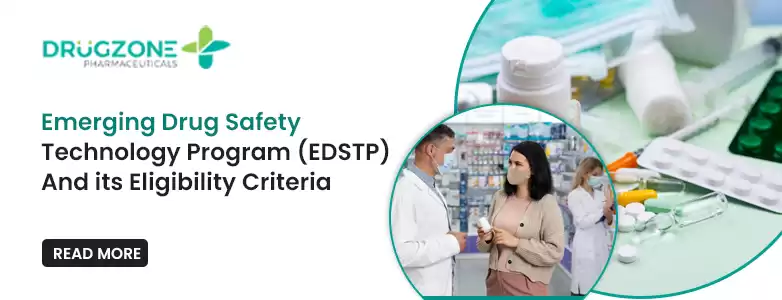
Posted On: July 30, 2024
DSCSA Compliance For Dispensers/Pharmacies
DSCSA Compliance For Dispensers/Pharmacies
The DSCSA, or Drug Supply Chain Security Act, is a federal law that came into play back in 2013. It sets strict rules to guard the drug supply from counterfeit, stolen, or tampered medications
As per the latest development, the Act requires that prescription drugs must be traceable at the individual package level. This means each box or bottle will have its own unique identifier. The goal is to make sure that the medicines you get are the real deal and have not been tampered with.
Drugs Excluded from the DSCSA
The DSCSA does not cover:
- Over-the-counter (OTC) drugs
- Animal drugs
- Several exempted drug types, such as -
- Active Pharmaceutical Ingredients (API)
- Imaging drugs
- Certain intravenous fluids
- Medical glasses
- Radioactive drugs
- Compounded drugs from outsourcing facilities
These drugs do not require the same traceability measures as others under the DSCSA.
Requirements for Pharmacies and Drug Distributors in the USA Under the DSCSA
The Drug Supply Chain Security Act brings in a bunch of rules to make sure that the medications you dispense are safe and legit. Here's what the pharmacies need to understand.
1. Know Your Suppliers
Before adding new drugs to your inventory, confirm that your suppliers are legitimate. Make sure they are registered and licensed.
You might also want to check their credentials through the FDA or third-party services. This step ensures the drugs you dispense are safe for your patients.
2. Keep Track of Drug Info
Simply stocking new drugs isn't enough. Keep detailed records of every transaction, including history, information, and statements. You are also required to store these records for at least six years.
Plus, your electronic system should be up and running to manage this data. It will aid in ensuring compliance and traceability.
3. Spot and Report Fake Products
If you come across any suspicious drugs, act immediately. Set up clear procedures to identify and report these products. Notify the wholesaler, manufacturer, and the FDA right away. This keeps your patients safe and maintains the integrity of the supply chain.
4. Handle Internal Transfers
Proper documentation helps avoid regulatory problems and ensures patient safety.
Hence, when moving drugs between your pharmacies, document each transfer accurately. Use either manual logs or an electronic system to keep a clear record.
5. Store Records Safely
Decide how you will store your records, either on-site with proper IT support or in a secure cloud service that meets DSCSA rules. The system should be reliable and make it easy to access your records.
6. Stay Compliant with DSCSA
Your systems and processes should be in line with DSCSA regulations. So, continuously update your team on any changes or new developments in the requirements.
Also, regularly review your procedures to ensure they are in keeping with current standards. Staying vigilant helps you maintain smooth operations and protects patient safety.
7. Authorized Trading Partners
Make sure your trading partners are authorized. This applies to everyone, including manufacturers, wholesalers, and repackagers.
Dealing with unauthorized partners can lead to serious penalties and compromise the safety of your supply chain, putting your business and patients at risk.
8. Temperature and Environmental Controls
Pharmaceuticals need to be stored and handled under specific conditions to stay effective. Follow the temperature and environmental controls specified on the drug's labeling.
By doing this, you prevent the drugs from degrading and ensure they remain safe and effective for your patients.
Make DSCSA Compliance Easy with Drugzone
Drugzone makes it simple for pharmacies to stay compliant with DSCSA regulations.
We take care of everything, from checking your trading partners with trusted FDA and third-party databases to keeping detailed records of all your drug transactions. This means you can quickly spot and report any suspicious products early on.
With us, you can focus on providing great service without worrying about regulatory issues..
FAQs
Q.What is the DSCSA and why should my pharmacy care about it?
The DSCSA (Drug Supply Chain Security Act) is a law that mandates the tracking of prescription drugs. Your pharmacy should care because it helps prevent counterfeit drugs, ensuring that the medications you provide to customers are genuine and safe.
Q.What steps do I need to take to comply with DSCSA requirements?
You need to track and record Transaction Information (TI), Transaction History (TH), and Transaction Statements (TS). Also, verify that the drugs and your suppliers meet the requirements.
Q.How will DSCSA impact my day-to-day pharmacy operations?
You will have some new tasks like setup and record-keeping. But with a good system, it will fit into your daily routine and help keep your patients safe.
Tags
Latest Posts
-

A Beginner's Guide to GS1 Standards for Pharmaceutical Companies
-

What are Important Accomplishments of the NDRP Modernization
-

A Comprehensive Guide to Prescription Animal Drugs
-

New Drugs Regulatory Program Modernization: Overview and Impact
-

What is the Emerging Drug Safety Technology Program (EDSTP) And its Eligibility Criteria?
Similar Posts
-

A Beginner's Guide to GS1 Standards for Pharmaceutical Companies
-

What are Important Accomplishments of the NDRP Modernization
-

New Drugs Regulatory Program Modernization: Overview and Impact
-

What is the Emerging Drug Safety Technology Program (EDSTP) And its Eligibility Criteria?
-

The Future of EPCIS Implementation: Trends, Challenges and the Best Practices
